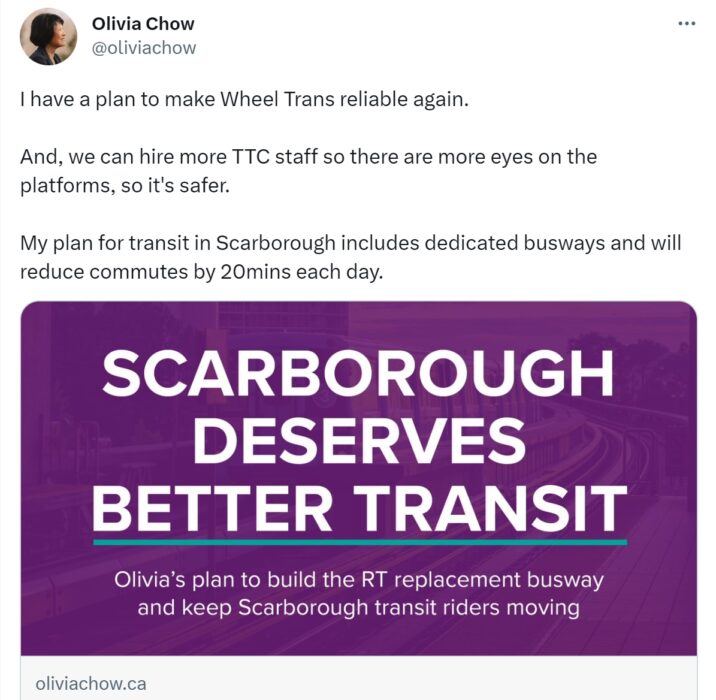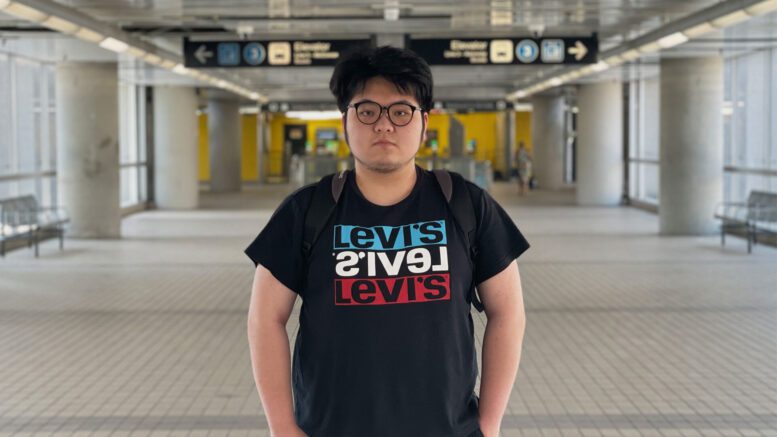Shaun Tseng taps his Presto card and grabs a seat on the bus home. He feels exhausted after a day out at work.
However, instead of closing his eyes and taking a nap, he hugs his backpack and looks around. He catches sight of another tired passenger. He avoids the passenger’s gaze nervously and looks out of the window.
Tseng, an immigrant from Taiwan and a frequent customer of the TTC, often travels by bus and subway. But as news about violent incidents on public transit increases, he goes out less often and feels worried about being on public transportation.
“I feel threatened and I don’t know when the dangers would happen,” Tseng said.
There were 1,068 violent incidents against TTC customers in 2022, an increase of 46 per cent compared to 2021 (there were 734 incidents in 2021), according to the reports released by Rick Leary, CEO of the Toronto Transit Commission. Also, 363 offenses against customers (including hurt, theft, robbery, sexual assault, etc.) occurred in the first quarter of 2023.
As the 2023 Byelection for Mayor approaches, riders and advocacy groups remain concerned about Toronto’s public transit security.

Why do these violent incidents happen?
Monica Mason, the coordinator of TTCriders, a democratic, volunteer-led organization of transit riders, says the reasons behind these violent incidents can be complex.
As a long-standing social issue, access to mental illness supports is one of the possible reasons for the increase in violent incidents on public transportation, Dr. Sandy Simpson, a forensic psychiatrist of the Centre for Addiction and Mental Health, told CP24.
However, some advocacy groups have raised objections to blaming the cause on mental health issues. They believe that categorizing mental illness as one of the reasons for violent incidents unfairly targets people with mental health issues.
Read more:
- Self-defence workshop for TTC becoming popular
- Everyone’s talking about violence on the TTC. Here’s how you can stay safe
Rachel Bromberg, the co-founder of Reach Out Response Network, says people with mental health challenges are “much more likely to be victims of crime than perpetrators of crime.”
She said the high cost of living, scarce housing resources, and limited medical conditions are some of the triggers to violence and crime on public transit.
“We need additional support for people who are struggling, who are experiencing homelessness, who are living in poverty, who are experiencing mental health or addictions challenges,” said Bromberg.
Monica Mason, the coordinator of TTCriders, a democratic, volunteer-led organization of transit riders, says that the current measures taken on security issues may make things more complex.
To address the increase in crime, starting from January, Toronto added more police at TTC stations to ensure the safety of passengers.
She said when people who experience mental health crises are in a situation with the police, the incident can escalate, and the person is also more likely to be harmed by the police. “One thing we’re calling for actually is non-police response to crisis and violence,” said Mason.
Long-term solutions needed: TTCriders
Mason said those who want to make TTC safer need to make sure that they are investing in long-term systemic solutions that are supportive.
She believes the solution should not be a reactive short-term deployment of police on public transit and people need a long-term strategy that reflects the root causes of this issue and involves listening to transit users.
What can the next mayor do?
How to make the public transit in Toronto more reliable and secure is likely to become one of the focuses of the byelection.
As of June 10, 31 candidates for the 2023 Byelection for Mayor have promised on social media that they will make public transportation in Toronto safer and more convenient.
Olivia Chow, one of the candidates for the mayoral race, proposed in a post on June. 1 to hire more TTC staff to make the public-transit platform safer.

Advocacy groups still have their different attitudes towards the candidates’ promises. They believe that changes in public transportation safety may not happen as easily as those candidates promise.
“It’s a really great chance for us to elect a transit champion, someone who will actually fund the TTC,” Mason said. She believes that TTC’s revenue gap has caused some of its problems. Passenger revenue for TTC Conventional in 2022 was $3.2 million below budget for 2021. Thus, Toronto needs “a mayor who’s going to reverse the service cuts and actually fund our transit system.”
Bromberg’s attitude towards the candidates’ promises differs somewhat. “A lot of what they’re doing is responding to what we would call, like quality-of-life type things; not necessarily violence, but people sleeping on the subway, people riding the subway just to get out of the heat or get out of the cold, that kind of thing,” she said.
She said adding public transit staff and police to stations cannot solve the problem, but “increasing the supply of housing for low-income people and creating more supportive housing units” would be the key to solving the problem. When fewer people do not have to stay overnight at the station due to poverty and homelessness, the probability of crime will decrease.

Bromberg said that though sometimes the candidates really want to make changes, their decisions and ideas still have to get voted in by the council.
She believes that most of the candidates are concerned about the lives of citizens in Toronto and hope to bring about some better changes, but often their efforts are constrained by “red tape or by challenges between governments or levels of government,” which makes it difficult to implement some of their initial ideas.
Despite feeling uneasy when going out alone, Tseng still regards TTC as his daily transportation. It is the cheapest and most convenient way for him to travel. He doesn’t have much hope for changes in public transportation safety, but he can only wait.
“I would fully support whoever can solve the issues of our city and our transport system,” Tseng said.


